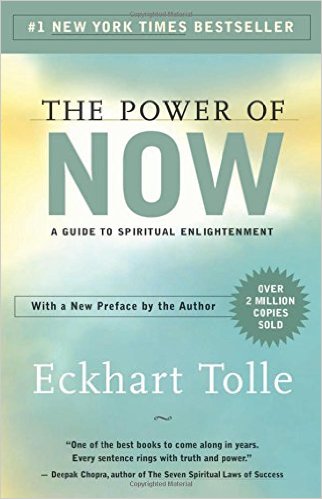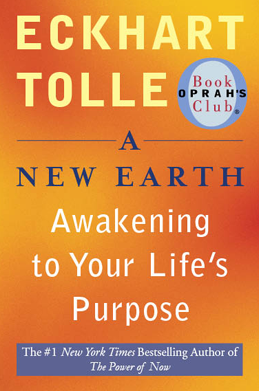|
Word Gems
exploring self-realization, sacred personhood, and full humanity
|
Part III
The "God" of the Bible reflects common views of deity in the ancient world:
the appeasement of disinterested and aloof gods with prayer and sacrifice
|
return to the main-page article on "God"
Editor’s note: Part III, in a sense, continues the discussion of the previous page. Prayer in the Bible is predominantly seen to be a sacrifice to God.
Why should a prayer be a sacrifice? This sounds like work. Why can’t you just talk to God in a normal way and expect to be heard? Why all the hoops to jump through? Who said it had to be hard this way? Well, for starters, lots of people in the Bible did. Not Jesus so much, though, as he said the opposite. He expressly asserted that “you will not be heard for your much speaking”; in other words, stop banging your pots and pans, thinking that this will get God’s attention, it’s not how it works.
But a lot of people say that this is very much how it works. And it all goes back to ancient-world concepts of deity. It doesn’t matter which BC-society you talk about, pretty much all the gods back then didn’t really like humans that much. You had to appease them; you know, get on their good side. Promise that you’ll be nice from now on, for example, if only the gods would just answer the small request of allowing you to marry the girl next door – who doesn’t like you that much, either – then you will offer flattering praise, groveling, burnt offering, and pilgrimage, for the rest of your days.
That’s how it works. That’s what they say.
I’ve reproduced an article featured on the “Prayer” page, as I felt it needed to be posted here. The bottom line? – Images of God as a tight-fisted curmudgeon, who won't listen to you, who couldn't care less, who might just as easily step on you as answer your prayer, is absolute bunk and rooted in darkest paganism.
Editor’s note: My apologies to the pagans, as many, or some, of them were wiser than those of the Judeo-Christian ethic. This is why the apostle Paul valued his philosophical studies and pagan teachers, quoting them from time to time: "the God in whom we live and move and have our being.” One of the greatest statements of all time about God was from a so-called pagan thinker.
************************************************************
"Pray without ceasing." The Apostle Paul

"If I really wanted to pray I’ll tell you what I'd do. I'd go out into a
great big field all alone or in the deep, deep woods and I'd look up
into the sky—up—up—up—into that lovely blue sky that looks as if
there was no end to its blueness. And then I'd just feel a prayer.”
Anne of Green Gables
prayer has two meanings
The discussion of prayer divides the topic into two broad definitions:
(1) prayer as petitioning, asking, a pleading for desires and wishes to be fulfilled; the emphasis is on human need, that which is lacking.
(2) prayer as state of mind, awareness, a perception of Divinity’s presence and involvement in one’s life; this view of prayer becomes a virtual state of consciousness, a silent, wordless accessing of Universal Intelligence and Love.
Prayer-as-asking will express itself in a wide continuum concerning the “cares of this world”; from the gross materialism of Joplin's “buy me a Mercedes” (see the main-page of quotes) to the basic requirements of maintaining life, help for finding a job, mate, or securing better health. Also included here are “beseechings” and “supplications” for imagined spiritual needs such as God’s forgiveness, mercy, pardon, and the like; however, as Father Benson informs us, God never judges or punishes us, cannot be offended, and therefore has no mercy to give.
|
Editor's note:
Christian minister Malcolm Smith, in one of his taped sermons, offers valuable understanding about the dysfunctional modern "churchianity" view of prayer.
In his younger years, Malcolm spent time in Africa as a missionary. In one of the villages, he encountered a great deal of drum-beating and wild dancing. He asked the village elders what all the commotion was about. Their response went something like:
"We're trying to get the attention of our gods. We know they don't like us very much, and don't really care about our situation. So we beat our drums and do our dances to flatter the gods, to worship and praise them, so that they'll take notice of us and maybe help us."

Is this not a sad state of affairs? How thoroughly pagan! - like a child whining and fretting, tugging on the skirt of Mummy to force her attention! But we should not haughtily feel superior to the primitives; you may already have discerned Malcolm's point - how similar is the modern Church's viewpoint of prayer!
Most people can't just walk in a field and silently commune with Divine Intelligence and know that all is well in hand. Instead, we have to "beat on our drums" and "do our dances" by contacting many others to pray for our need, sending out a prayer-bulletin, by engaging in complicated formularies of masses, prayer sessions, fastings, hosannas and hallelujahs, praise-worship-flattery, pilgrimages, deal-making with heaven, vows, giving money, sending in Mother Mary to convince the angry Father - all designed to "get the attention" of a god whom we believe doesn't really like us all that much.

This god is as charming as the woman in Frank and Nancy Sinatra's song, Something Stupid, who disdains terms of endearment, contemptuously makes her petitioner stand-in-line until she deigns to "spend an evening with me," but, even when his prayers are answered and they "go dancing," he knows that "she might not be leaving with me," so fickle is she that he could be ignored and replaced that very evening! (smile) - but, if he puts up with that kind of insult, he needs to think about his own neediness, lack of self-respect, and cut his losses - and quickly.
How thoroughly pagan is all this "drum beating," and how contrary to simple and plain New Testament teaching of "Do not think that you will be heard for your much speaking"; or the Apostle Paul's advice of "Let your simple yes be yes and your no be no," with no need for embellishment.
|
Prayer as state of consciousness is promoted by many of the great souls, such as Mother Teresa, Gandhi, Meister Eckhart, Lucy Montgomery, John Bunyan, Amit Ray, Francis of Assisi, Eben Alexander, and so many others; the most notable among which, I think, is the Apostle Paul with his famous advice to “pray without ceasing” delivering “the peace which passes all understanding.”
Some of the featured quotations (on the main-page) are humorous, but widely divergent of wisdom. Comedian George Carlin made me laugh with his outrageous “I pray to Joe Pesci, he knows how to get things done, even a couple of things God had trouble with.” Joe’s brutality, indeed, did get things done with Evil's "efficient" ways; for example, he got things done real fast in a movie as enforcer of Las Vegas magnate Robert De Niro, but it also got Joe bludgeoned with a pipe-wrench and buried alive in a cornfield. George failed to mention that little part on Joe's effectiveness.
we all need things right now
There’s nothing wrong with prayer-as-asking. We all need things during our present time of mortality and vulnerability. But in our asking let us avoid the needy state of mind, that of “not being enough.”
.jpg)
"gimme, gimme, I need, I need, I need"
Eckhart Tolle’s instruction of “the art of presence” – that is, accessing the inner, true self linked to Universal Abundance - is another way, a very good way, of talking about prayer as a state of consciousness.
When we live in Summerland, prayer-as-asking for material blessings will become passé. In that day, prayer-as-consciousness will take center-stage; for some, it already has, and well that it should.
Living in an awareness of God is part of our eternal home. As Anne wisely suggests, we need to feel a prayer, and when we learn how, we can "pray without ceasing."
Editor's note: The following is the first point of evidence featured on the "Afterlife" page. I include it here as it involved "praying" as part of the experiment:
|
#1 Dr. Gary Schwartz: detecting the presence of light-radiating Spirit-entities in a biophoton laboratory.
The following experiment, conducted by Professor Gary Schwartz, University of Arizona, is elegant in its simplicity, easy to understand, yet offers some of the most potent empirical evidence for the existence of an afterlife.
"What happened next I witnessed with my own two eyes. In watching hundreds of hours of outputs, I rarely saw photon sums above 50-75. I was now seeing a 173-unit photon, and it occurred shortly after I had [silently] asked [invisible Spirit entities] to make a big [display of light]."
READ MORE
|
|
immature prayer is a form of "choice," the dysfunctional gimmee-gimmee; but the advanced person no longer "chooses" at all, but instead attunes oneself with Universal Intelligence, thereby allowing "the answer" simply to come
On the "Reincarnation" page, where I explain its many errors, I explore the question, "Is reincarnation a personal choice?" as many believe it to be.
You are invited to read the entire discussion there, however, I came to see that the Higher Self no longer chooses anything, in this world or the next. Instead, it access God's mind, brings itself into alignment with it, and by this atunement, is led in the right direction.
Editor's note: I make an issue of "this world or the next" because there are a lot people on the other side who have not yet found their "true selves," causing them to "pray for" and "choose" worlds which merely reflect their egoic states of mind.
But as I thought about this, as it applies to the reincarnation question, it occured to me that immature prayer is just one more form of "choice." But only the Little Me Ego, with it's pervasive "I don't have enough" because "I am not enough" will attempt to pray, and "choose," in this neurotic manner.
The following is an excerpt from the "Reincarnation" page:
As our “eyes open,” we’ll stop making “choices” and simply allow the answer to come to us. It is only the Ego that wants to “choose.” It will attempt to choose in all aspects of life, in this world and the next, until we get our heads right, including the area of “R.”
The Ego wants to choose “R” as it desires to choose any option that might artificially enhance itself or grant to itself “more time.” But the Ego, in reality, doesn’t get to choose anything; except among various options for suffering. That’s what it chooses, and that’s what it’s good at creating. The Ego fancies itself "in control," able to choose, but this is gross illusion. The Ego's little wishes have no power to craft and mold reality.
Why is this so? See the inset box on “The Jungle Always Wins” for a discussion of how all civilizations, all societies, cultures, and social contracts – expressions of the Little Me Ego -- are “passing away,” as the apostle John used the phrase. A desire to choose "R" will be included on this list of bankrupt attempts to find happiness.
Everything the Ego touches eventually turns to tears, brings no satisfaction, leads to existential crisis, comes to nothing -- but for the chaos it creates. The Higher Self does not “choose,” in any area of life, in this world or the next. Regarding those very rare instances of certain ones returning to the Earth as a mortal for a special service-mission, this is not a “choice,” as such, but an alignment with Universal Intelligence, which directs the endeavor.
|
|
Editor's note:
At another time, I may offer my own experience with praying and fasting and what I learned. Briefly, for some years, especially during my bible college days, I engaged in a strict regimen, a kind of military discipline, of 36-hour fasting every 2 weeks, plus daily prayer of one hour. After years of this, I found myself burned out. It didn't really help me, except to reveal what doesn't work.
I'm reminded of a comment of Tolle that the Buddha did not enter enlightenment until he gave up ascetic practices. I understand what this means now. Enlightenment comes "through" the body, that is, accessing the inner "subtle body," not by punishing and denying the outer body.
Will Durant mentions that in many primitive languages the term "god" means "a dead man" - most gods began as idealized ancestors. A related concept is the "eponymous hero," or "eponym," a legendary person to whom a group attributes its origin and name; e.g., Troy from Tros, Dorians from Doros, Peloponnesus from Pelops, Hercules from Hera (the goddess he overcame). It's not hard to see how this happened, given the venerable status of revered, dearest relatives. And it's a natural desire to want to talk or "pray to" departed loved ones.

|
|


.jpg)

